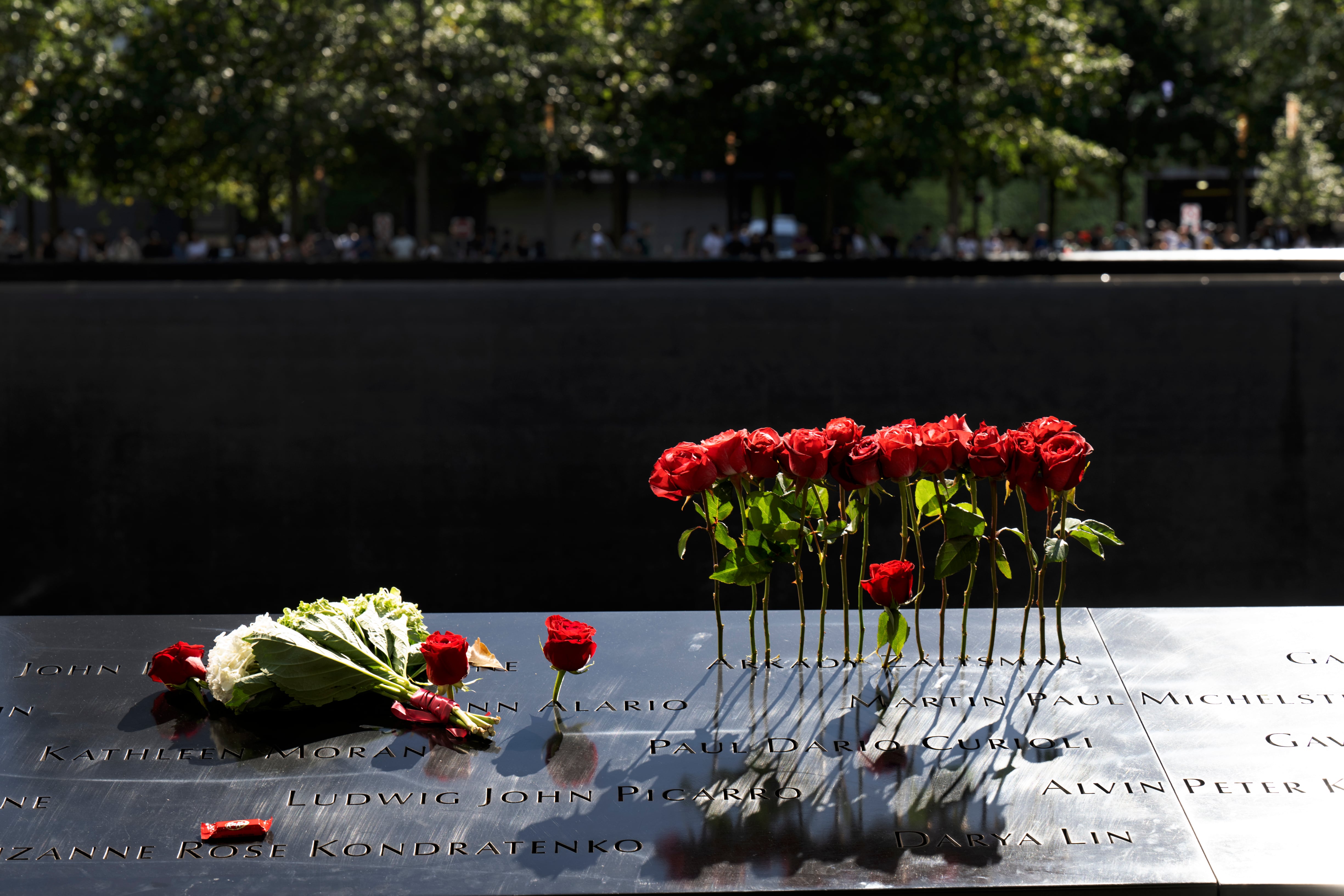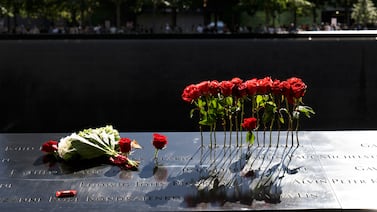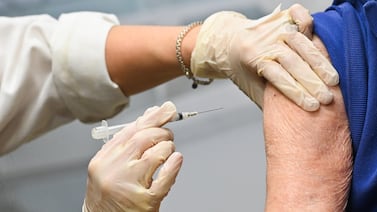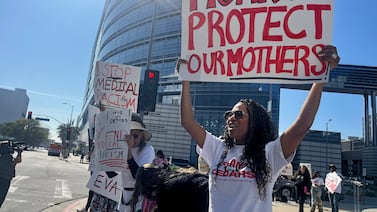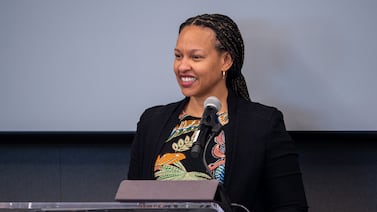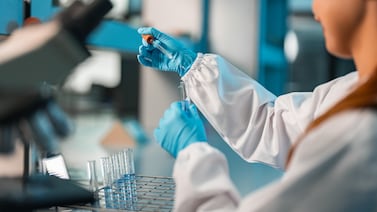This story was originally published by THE CITY. Sign up to get the latest New York City news delivered to you each morning.” Public health, explained: Sign up to receive Healthbeat’s free New York City newsletter here.
Layoffs at the federal World Trade Center Health Program have caused “chaos,” leaving members and city agencies alike unsure who to contact when city employees face delays in lifesaving care, according to officials, insiders, and advocates.
The program, which began a decade after the 9/11 terrorist attack, provides medical services to impacted individuals and studies 9/11-related illness. It serves more than 83,000 New Yorkers, and has generally garnered the support of Republican members of Congress from the New York region.
But earlier this month, President Donald Trump approved layoffs at the Department of Health and Human Services, including doctors and the longtime director of the National Institute for Occupational Safety and Health, Dr. John Howard, who helped create the World Trade Center Health Program.
Howard was reportedly brought back after an outcry, but the other layoffs remain. And now people in the city who deal with the WTC survivors program say they’ve lost key points of contact — and faith in its future.
But despite the threats to city workers, Mayor Eric Adams, a retired police officer who also responded at Ground Zero, refused to answer repeated questions from THE CITY earlier this month about the cuts to the program. New York City has the nation’s largest share of 9/11 responders and survivors enrolled in the program.
Lawyer Michael Barasch represents thousands of people across the country who are enrolled in the 9/11 health program. He’s also in it: His office is on Park Place, a few blocks from Ground Zero, and he’s lost two employees to cancer and survived prostate cancer himself.
“It’s total chaos,” he said, with clients calling up unsure of how to access the program’s services. “We don’t know what’s going to happen.”
Barasch told THE CITY that one man called him recently asking, “Will the government keep paying for my chemo?”
People enrolled in the program qualify for free annual exams, which often results in early detection of cancers and other illnesses, he noted.
“They turn them up early, and early detection saves lives,” Barasch said. The program also funds grants to research other potential 9/11-linked illnesses or side effects.
“If NIOSH is eviscerated, who’s gonna finish the studies?,” he said.
John Feal, a Ground Zero demolition supervisor who founded the FealGood Foundation to push for more funding for Sept. 11 survivors and first responders, criticized Adams for not doing more for city workers and residents — especially as a former cop who responded after the attacks.
“I want a mayor who’s gonna care about humanity, who has empathy and who has compassion,” he said in an interview earlier this month on PIX 11.
“This is a man who cares about himself, saving his own butt. He made a deal with this [Trump] administration, so we know where his mind is and especially I know where his heart is, and it’s not with the 9/11 community.”
City agencies in the dark
The upheaval at the federal agency has also affected city agencies, which have lost contacts and await approvals for medical treatment, according to a spokesperson for the mayor’s office who did not want their name published.
The Department of Health and Mental Hygiene’s direct contacts to the program were laid off, without any information on what will happen next.
At the FDNY, active and retired firefighters in need of life-saving procedures including chemotherapy and a lung transplant are in limbo, with higher-ups not there to approve them, according to the mayor’s office . And even approval for personnel protective equipment — including respirators — are done through the now-cut federal agency, without any idea of who will handle it.
After Adams dodged multiple questions about the program, a spokesperson sent a statement last week, avoiding any direct criticism of the Trump administration. “New York City is dedicated to providing quality health care to the heroes who responded on 9/11 and the survivors of the most tragic day in America’s history,” the mayor said in a statement.
“Our partnership with the federal government to deliver these services is vital, providing access to life-saving, time-sensitive treatment for every firefighter, police officer, volunteer, and everyday New Yorker who remember that day, and remember what it took to rebuild the next morning. We are reaching out to the federal government about restoring these important resources.”
A spokesperson for the Centers for Disease Control and Prevention, Brittney Manchester, said in a statement that the programs are continuing but didn’t address the layoffs or concerns about lost contacts.
“Direct patient care is functioning, and program members are being seen by doctors and nurses at clinics,” she wrote.
“All statutorily required programs will remain intact, and as a result of the reorganization, will be better positioned to execute on Congress’ statutory intent.”
Further cuts to the Sept. 11 survivors program could also leave the city on the hook to pay for medical care, advocates note.
There are more than 137,000 responders and survivors living across the country, and more than 46,000 of them sought treatment last year through the World Trade Center Health Program, according to data from Citizens for the Extension of the James Zadroga Act Inc, an advocacy group.
New York state has the largest share of people enrolled in the program, with 83,719 as of last June, data show.
New York City pays 10% of the health care program and victims compensation fund – which has cumulatively awarded more than $15 billion since the program began. But with more than 10,600 enrolled members in union, with many having their usual health insurance paid by the city, further cuts to the federal program could leave the city responsible for subsequent health care costs.
Ben Chevat, the executive director of independent 9/11 Health Watch, told THE CITY that most of the problems spawning from the staff cuts aren’t fully known yet — but will likely get worse.
“The list of the problems these staff cuts have caused is growing,” he said. “Certification of responder and survivor conditions allowing for their care have stopped. New enrollments for those seeking care have stopped. This will cause delays in care, it will also cause delays in compensation for those injured.”
Katie is a reporter for THE CITY and co-host of FAQ NYC podcast. Email Katie at khonan@thecity.nyc.

